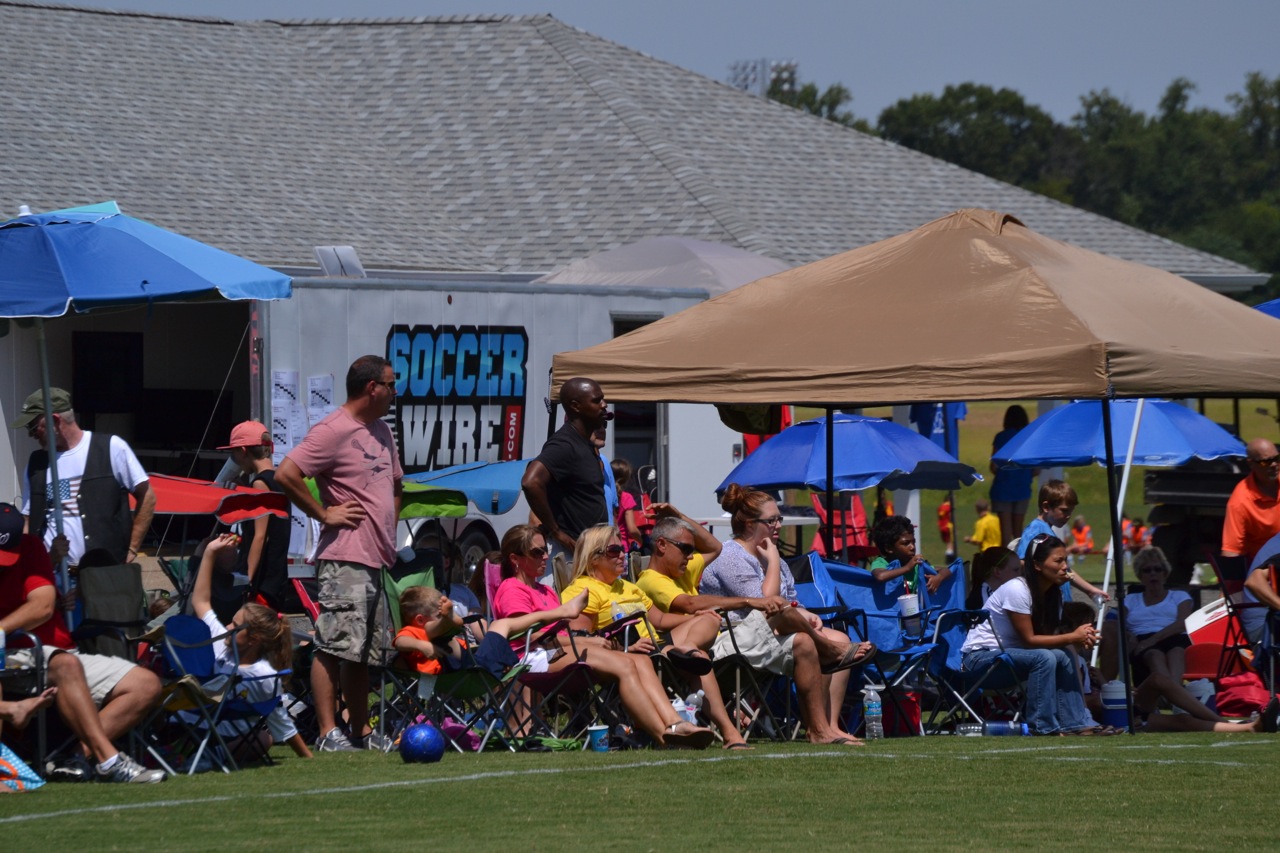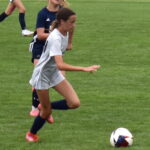How to help your kid succeed at soccer, even if you know nothing about the sport

 I hear that familiar ka-clump, ka-clump coming nearer and nearer as I wait my turn at the deli counter. Ah, I’ve missed that sound over the summer months, but it returns every fall. Just to confirm it’s back, I turn and look. Yep, there’s dad and a pint-sized soccer player, red-clad from neck to knees sporting brand new black socks and newly muddied soccer cleats, scuffing down the snack food aisle. The ka-clump is unmistakable, but why doesn’t someone tell this kid to take off his boots at the field and slip on something non-skid for the grocery stop on the way home?
I hear that familiar ka-clump, ka-clump coming nearer and nearer as I wait my turn at the deli counter. Ah, I’ve missed that sound over the summer months, but it returns every fall. Just to confirm it’s back, I turn and look. Yep, there’s dad and a pint-sized soccer player, red-clad from neck to knees sporting brand new black socks and newly muddied soccer cleats, scuffing down the snack food aisle. The ka-clump is unmistakable, but why doesn’t someone tell this kid to take off his boots at the field and slip on something non-skid for the grocery stop on the way home?
+READ: Injury prevention made easy: Have your players self-monitor their training readiness
Perhaps this parent is new to youth soccer and he didn’t get the memo. Or perhaps we’re not sending out that memo any more. You know, the one that’s titled: How to Help Your Kid Succeed in Soccer Even if you Don’t Know the First thing About Soccer. Here is my bullet list of best practices for rookie parents.
- Have your kid bring enough water in an insulated container (disposable 4-8 oz bottles are not enough)
- Send your kid with the properly sized (#3, 4 or 5, according to age) soccer ball labeled in permanent marker with your child’s name in at least 2 places. Be sure it is inflated!
- Feed your kid a healthy, easily digestible snack before practice and pack one in his bag (hungry kids are good for pretty much nothing).
- Arrive at practice with enough time for your kid to put on his gear and get all the way to the practice field before start time.
- Walk your kid to his practice field on opening day and have him introduce himself to the coach. (This is also a good way to be sure you have the right coach and team.)
- If you stay and watch practice, do so from a respectable distance.
- If you don’t stay, be on time for pick-up. Be sure your kid knows who is picking him up.
- At games, cheer for good soccer played by either team.
- After games, shake the coach’s hand in thanks for their efforts and encourage your child to do the same.
- Take the cleats off at the field (soccer sandals, flip-flops, sneakers are all good) so you don’t fall in the parking lot or the grocery aisle. This also keeps mud and turf nubs to a minimum in dad’s new car.
+READ: Effort Injuries are Taking Kids Out: is “positive” parenting to blame?
Every family should be contributing to the team in some way. Coaches or assistant coaches who can keep the emphasis on fun and a bit of learning are priceless, and even better if they are willing to get a little training, but there are tons of things parents can do to help the coach focus on the kids and be a more effective coach. Even if you haven’t been asked directly, here are a few things to consider doing:
- Help pack up and carry equipment.
- Bring a ball pump and top off those soccer balls.
- Help print, fill out and/or collect paperwork.
- Volunteer to help line the fields.
- Coordinate snacks.
- Help with admin and communications.
- Provide ice or TLC for the kid who gets bumped.
For parents of more experienced soccer players, I would add these tried and true practices:
- Have your kid create a system to be sure he has everything he needs for his games and practices.
- Put your kid in charge of whether his uniform is clean on game day. Let him wear it dirty.
- Let the kid forget his (cleats, water, ball, etc) and allow him to experience the consequences.
- At the game, resist the urge to instruct or admonish your kid or any kid from the sidelines.
- Schedule transition time for your kid and your family so he can cool down and stretch after the game.
- On the car ride home, resist the urge to “discuss” how things went.
- Learn the game and the rules and become an educated spectator or even a referee.
- If you have a medical or health care background, learn how to identify and manage a player with an injury, even a possible concussion.
How many of the hard feelings and how much of the dissension on our fields could we put to rest if we worked harder at working together?
SOCCERWIRE MARKETPLACE
- Start the Season Strong at Loudoun Premier Cup!
- 50th Annual Rael Vodicka Memorial Tournament
- Soccer Marketing Internships at The St. James FC
- Job Opening: The St. James FC Goalkeeper Academy Coach
- Full-Time Director of Goalkeeping for The St. James FC
- visitRaleigh.com Showcase Series 2025, hosted by NCFC Youth
- Join Official Elite Summer Soccer Camps with Europe’s Top Pro Clubs!
- OFFICIAL BAYERN MUNICH SUMMER CAMPS U.S.
- OFFICIAL FC BARCELONA CAMPS U.S.
- The Cup San Diego - Hosted by Legends FC











